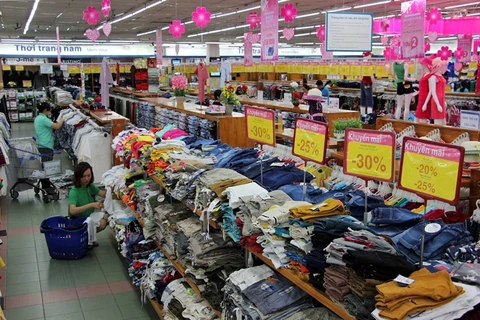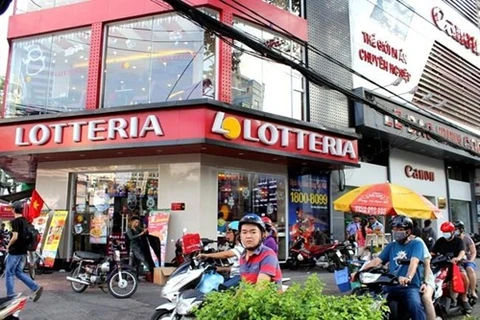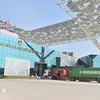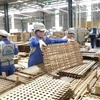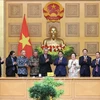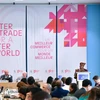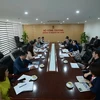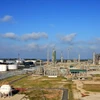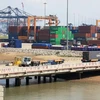HCM City (VNA) - The local retail community has asked the Government to develop policies to help the industry compete with foreign counterparts as a more liberal trade environment has intensified competition in recent years.
The retail industry has had impressive growth, contributing jobs and revenue, and acting as a bridge between production and consumption, according to Nguyen Thi Thu Trang, director of the WTO and Integration Centre of the Vietnam Chamber of Commerce and Industry.
Trang spoke at a workshop on identifying risks of the retail industry held in HCM City o June 29.
Under the Trans-Pacific Partnership agreement and the EU-Vietnam Free Trade Agreement, tariffs and non-tariff barriers to goods will be removed, creating even more competition for local retailers as large foreign retailers continue to expand in the domestic market.
Vietnamese retailers' weak points, including management ability, process control technology, and professional skills, have been exposed in recent years.
A significant number of local retailers have left the market, and many producers have had problems selling products to foreign supermarkets.
Dinh Thi My Loan, chairwoman of the Association of Vietnam Retailers, said that Vietnamese retailers must develop specific plans to improve competitiveness.
She called on the Government to help local retailers access premises in good locations and provide updated information about sites include in zoning plans.
Under a new Government decree, businesses investing in markets in rural areas, building supermarkets or trading centres, and offering logistics services, would enjoy incentives.
"The important thing is we want these incentives to quickly come into force," she said.
Loan said the Government had launched support packages for the real estate sector and programmes for industrial and agricultural extension, but there was no support package for the retail sector.
"We want the Government to consider providing the retail sector with capital support," she said, adding that assistance in improving the quality of their human resources would also be beneficial.
Huynh Van Minh, chairman of the HCM City Union of Business Associations, said the Government should not only adjust policies to help local retailers and manufacturers but also restructure the country's retail system.
Local retailers were also urged to work together to better compete with foreign counterparts.
Vietnam is home to nearly 9,000 traditional markets, 830 supermarkets and 150 shopping centres, according to the Ministry of Industry and Trade.
While modern trade channels account for just 25-30 percent of retail business, they are on the rise.
"The retail industry still has great potential for both local and foreign retailers," Loan said.
Pham Trung Kien, deputy director of Saigon Co.op, said the retail industry in the next three years would see high levels of investment.
By the end of last year, foreign retailers controlled 58 percent of the local retail market, she said.
That is expected to increase to 63 percent by 2020, he said.
Foreign retailers in Vietnam first have to meet an economic needs test before they are allowed to open a new store larger than 500 square metres.
But in most places, authorities have not implemented it well, according to Kien and other delegates at the workshop.
They urged the Government to better enforce this regulation to protect the legal rights of local retailers.
However, Trang said that Vietnam had committed to remove the economic needs test five years after the TPP takes effect.
She said that her centre, in collaboration with the Association of Vietnam Retailers, had conducted research on the risks of the retail industry after the TPP and the EU-Vietnam FTA come into force.
The aim of the research was to identify obstructions to the retail industry and to propose specific policies to help the industry develop in a sustainable manner, contribute to the development of other manufacturing industries, and increase consumer benefits.-VNA


